ABRF 2020 Plenary Speakers:
George Church, Professor of Genetics at Harvard Medical School
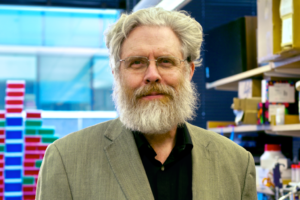
George Church is Professor of Genetics at Harvard Medical School and Director of PersonalGenomes.org, which provides the world’s only open-access information on human Genomic, Environmental & Trait data (GET). His 1984 Harvard PhD included the first methods for direct genome sequencing, molecular multiplexing & barcoding. These led to the first genome sequence (pathogen, Helicobacter pylori) in 1994 . His innovations have contributed to nearly all “next generation” DNA sequencing methods and companies (CGI-BGI, Life, Illumina, Nanopore). This plus his lab’s work on chip-DNA-synthesis, gene editing and stem cell engineering resulted in founding additional application-based companies spanning fields of medical diagnostics ( Knome/PierianDx, Alacris, AbVitro/Juno, Genos, Veritas Genetics ) & synthetic biology / therapeutics ( Joule, Gen9, Editas, Egenesis, enEvolv, WarpDrive ). He has also pioneered new privacy, biosafety, ELSI, environmental & biosecurity policies. He is director of an IARPA BRAIN Project and NIH Center for Excellence in Genomic Science. His honors include election to NAS & NAE & Franklin Bower Laureate for Achievement in Science. He has coauthored 514 papers, 143 patent publications & one book (Regenesis).
*Link to full Bio
Josh Denny, CEO, NIH All of Us Program
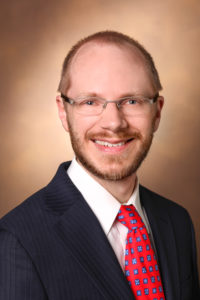
Josh Denny is a Professor of Biomedical Informatics and Medicine, Director of the Center for Precision Medicine, and Vice President for Personalized Medicine. His research interests include natural language processing, accurate phenotype identification from electronic medical record data, and using the electronic medical record to discover genome‐phenome associations to better understand disease and drug response, including the development of the EMR‐based phenome‐wide association (PheWAS).
He is PI of the Data and Research Center of the All of Us Research Program, which launched nationally in May 2018 and has already enrolled >220k individuals en route to 1 million or more to understand the genetic, environmental, and behavioral factors that influence human health and disease. He is also PI for Vanderbilt sites in the Electronic Medical Records and Genomics (eMERGE) Network, Pharmacogenomics Research Network (PGRN), and the Implementing Genomics Into Practice (IGNITE) Network.
He is a member of the National Academy of Medicine, the American Society for Clinical Investigation, and
the American College of Medical Informatics
Chris Mason, Associate Professor of Genomics at Weill Cornell Medicine
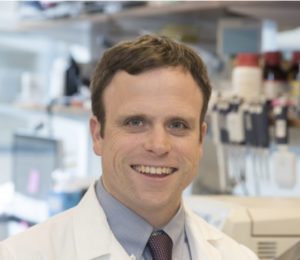
Dr. Christopher Mason is an Associate Professor of Genomics at Weill Cornell Medicine, as well as the Director of the WorldQuant Initiative for Quantitative Prediction, with appointments at Memorial Sloan Kettering Cancer Center (MSKCC) and Rockefeller University.
The Mason laboratory develops and deploys new biochemical and computational methods in functional genomics to elucidate the genetic basis of human disease and human physiology. We create and deploy novel techniques in next-generation sequencing and algorithms for: tumor evolution, genome evolution, DNA and RNA modifications, and genome/epigenome engineering. We also work closely with NIST/FDA to build international standards for these methods (SEQC2, IMMSA, and Epigenomics QC groups), to ensure clinical-quality genome measurements and editing. We also work with NASA to build integrated molecular portraits of genomes, epigenomes, transcriptomes, and metagenomes for astronauts, which help establish the molecular foundations and genetic defenses for enabling long-term human spaceflight.
He has won the NIH’s Transformative R01 Award, the NASA Group Achievement Award, the Pershing Square Sohn Cancer Research Alliance Young Investigator award, the Hirschl-Weill-Caulier Career Scientist Award, the Vallee Scholar Award, the CDC Honor Award for Standardization of Clinical Testing, and the WorldQuant Foundation Scholar Award. He was named as one of the “Brilliant Ten” Scientists by Popular Science, featured as a TEDMED speaker, and called “The Genius of Genetics” by 92Y. He has >175 peer-reviewed papers that have been featured on the covers of Nature, Science, Cell, Nature Biotechnology, Nature Microbiology, and Neuron, as well as cited by the U.S. District Court and U.S. Supreme Court. Coverage of his work has also appeared on the covers of the Wall Street Journal, New York Times, TIME, The LA Times, and across many media (ABC, NBC, CBC, CBS, Fox, CNN, PBS, NASA, NatGeo). He has co-founded five biotechnology start-up companies (Genome Liberty, Biotia, Onegevity Health, P-Omics, and Shanghai GeneTech) and serves as an advisor to 15 others. He lives with his daughter and wife in Brooklyn, NY.
Julie Theriot, U.W. The Allen Institute
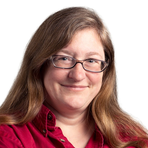
Julie Theriot attended college at the Massachusetts Institute of Technology, earning dual B. S. degrees in physics and biology. She completed her Ph.D. in cell biology at the University of California at San Francisco, and then returned to Cambridge as a Whitehead Fellow at the Whitehead Institute for Biomedical Research. She joined the faculty of the Stanford University School of Medicine in 1997, with appointments in the Department of Biochemistry and the Department of Microbiology & Immunology, and an Investigator of the Howard Hughes Medical Institute (HHMI). Julie is currently a Professor at the University of Washington, Department of Biology, a continuing HHMI Investigator, and as Chief Scientist at the Allen Institute for Cell Science.
The experimental work of her research group focuses on quantitative measurement of the dynamic and mechanical behavior of structural components in living cells, exploring the molecular and biophysical mechanisms of various forms of cell motility and shape determination across a variety of eukaryotic and bacterial cell types. Julie has won numerous awards for her research, including the David and Lucile Packard Foundation Fellowship for Science and Engineering and the John D. and Catherine T. MacArthur Foundation Fellowship. She has also received multiple teaching awards from both M. D. and Ph. D. students at Stanford. Julie is a coauthor of the textbook “Physical Biology of the Cell.”
Karen Colwill, Ph.D., Staff Scientist, Network Biology Collaborative Centre Manager, Lunenfeld-Tanenbaum Research Institute, Sinai Health System
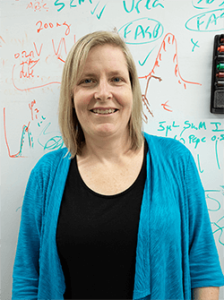
Dr. Karen Colwill is a Staff Scientist at the Lunenfeld-Tanenbaum Research Institute (LTRI) and Manager of the Network Biology Collaborative Centre (NBCC, nbcc.lunenfeld.ca), a Canadian platform providing functional proteomics and genomics services. She was appointed to the Canadian National Proteomics Network Board of Directors in 2018. She has a strong background in molecular biology and proteomics having trained with Dr. Tony Pawson at the LTRI for her PhD and with Dr. Brenda Andrews at the University of Toronto for her post-doctoral work. After her academic studies, she gained industrial experience at MDS-Proteomics where she managed a team dedicated to cell biology and protein purification for mass spectrometry. At the LTRI since 2002, she has managed several large-scale proteomics projects and contributed to the development and maintenance of laboratory information management systems (LIMS) including OpenFreezer to track reagents, ProHits for mass spectrometry analysis, and CoreFlow, a pipeline for integrating and analyzing biological data. As manager of the NBCC, Karen works with collaborating scientists and coordinates new technology development from initial concept to delivery of standardized procedures available to users of the Centre.
Kasthuri Venkateswaran, NASA
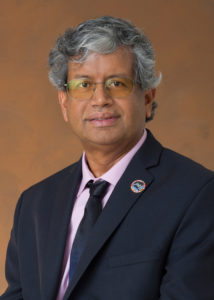
Dr. Kasthuri Venkateswaran (Venkat) is the Senior Research Scientist at NASA – Jet Propulsion Laboratory and supports Biotechnology and Planetary Protection Group. His 40+ years of research encompass marine, food, environmental, and space microbiology. He is also leading ISS flight projects “Microbial Tracking – 1, 2, and 3” to measure microorganisms associated with U.S. nodes, as well as Kibo Japanese Experiment Modules since 2014 (8 flights). CASIS supported flight projects were carried out to elucidate differential production of bioactive compounds in fungi under microgravity. With TRISH funded project, he has developed an automated DNA extraction system that is microgravity compatible and validated in remote extreme environments like Yellowstone National Park. He has applied his research in molecular microbial analysis to better understand the ecological aspects of microbes, while conducting field studies in several extreme environments such as deep sea (2,500 m), spacecraft mission (Mars Odyssey, Genesis, Mars Exploration Rovers, Mars Express), assembly facility clean rooms (various NASA and European Space Agency [ESA] facilities), and the space environment in Earth orbit (ISS; ESA Columbus facility). He manages several research and development tasks for the JPL – Mars Program Office, which enables the cleaning, sterilization, and validation of spacecraft components.
He directs several NASA competitive awards on the microbial monitoring of spacecraft and associated environments for the closed habitats like ISS or its Earth analogues for the Advanced Exploration Systems Program, Human Exploration and Operation Mission Directorate. Also, he provides expertise for non-NASA programs such as commercial agencies (Boeing – airline cabin air measurement), medical industries (tissue and organ transplants processing) in measuring microbial pathogens that are problematic and health related. The bioinformatics databases generated by his team and placed in NASA GeneLab are extremely useful in the development of biosensors. Further, these models or information in database are extrapolated to what is known about the spacecraft surfaces and enclosed habitats in an attempt to determine forward contamination as well as develop countermeasures (advance cleaning and sterilization technologies) to control the problematic microbial species. Specifically, his research into the study of clean room environment using state-of-the art molecular analysis coupled with “omics technologies, will allow accurate interpretation of data and implementation of planetary protection policies of present missions, helping to set standards for future life-detection missions.
The NASA-JPL Science and Technology website will give some of his professional and contact information (http://scienceandtechnology.jpl.nasa.gov/people/k_venkateswaran/).
He has published ~250+ research articles and holds several patents (~10 biotechnology related), NASA Space Act Award, 2003; ~25 Novel Technology Report Awards since joined JPL in 1998. He is the recipient of the first “One NASA Peer Award,” in 2005 for JPL and also fetched the JPL Center–One NASA Peer Award in the same year. In 2017, he received both NASA Exceptional Scientific Achievement Medal and NASA Exceptional Technology Achievement Medal.
